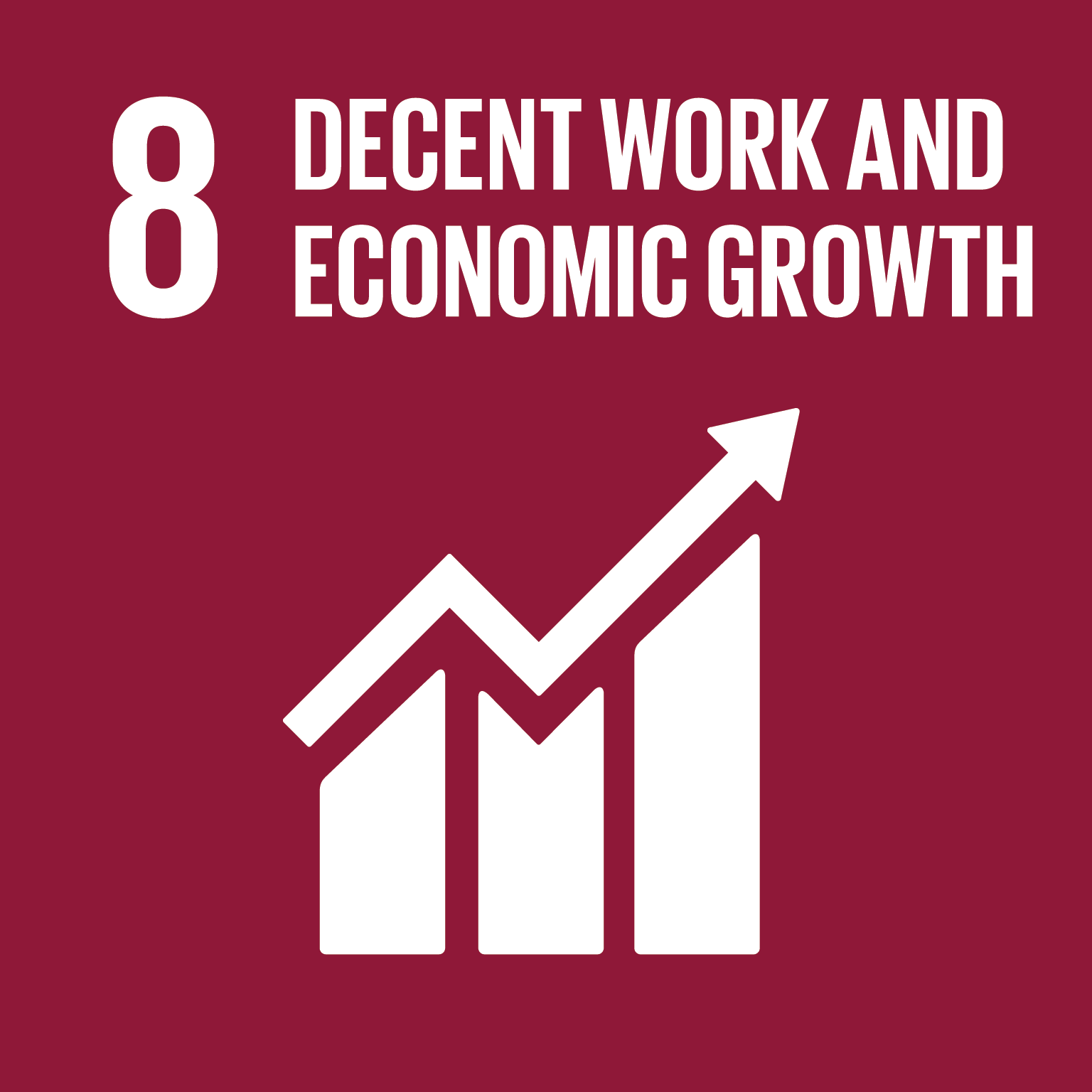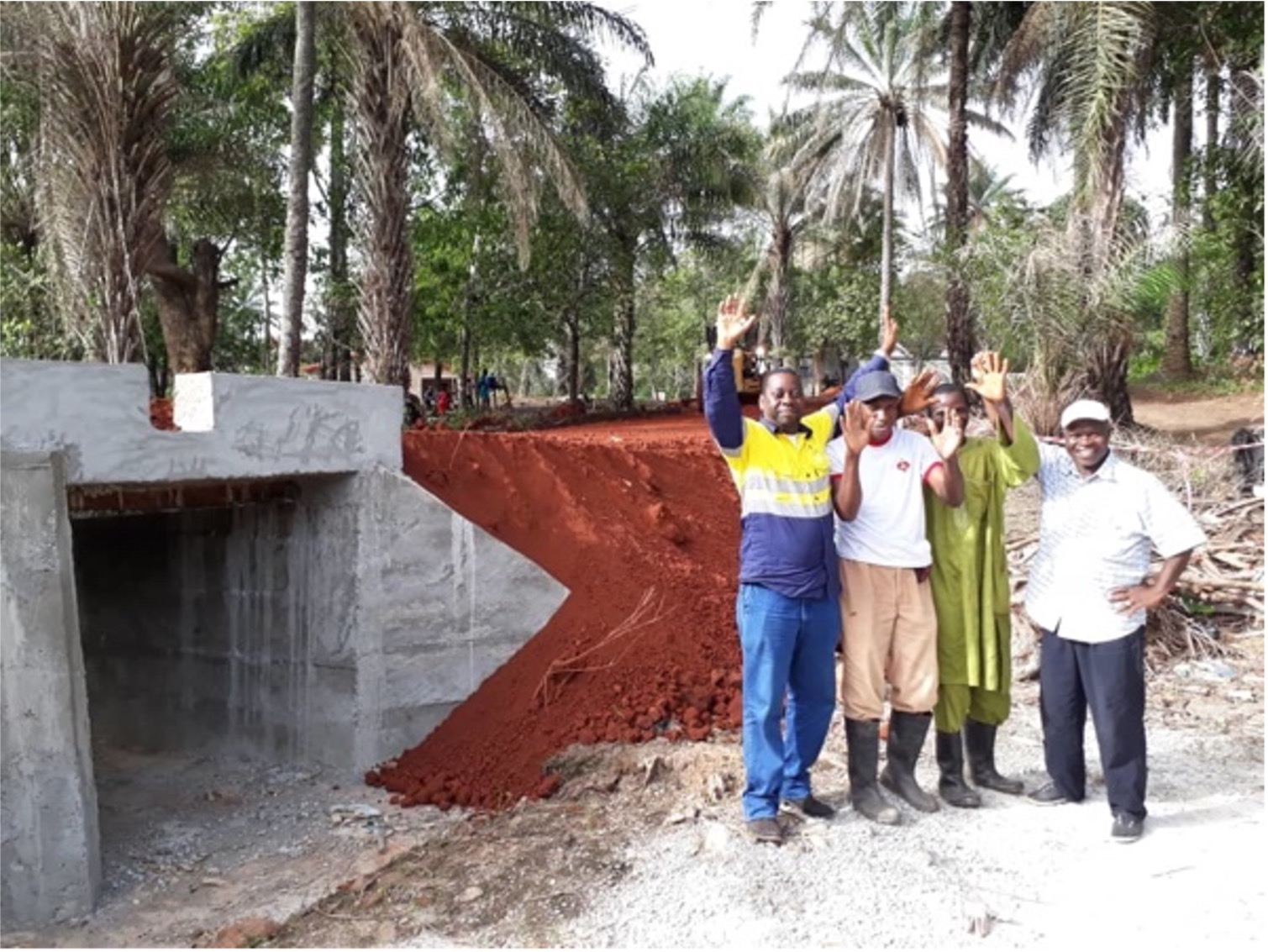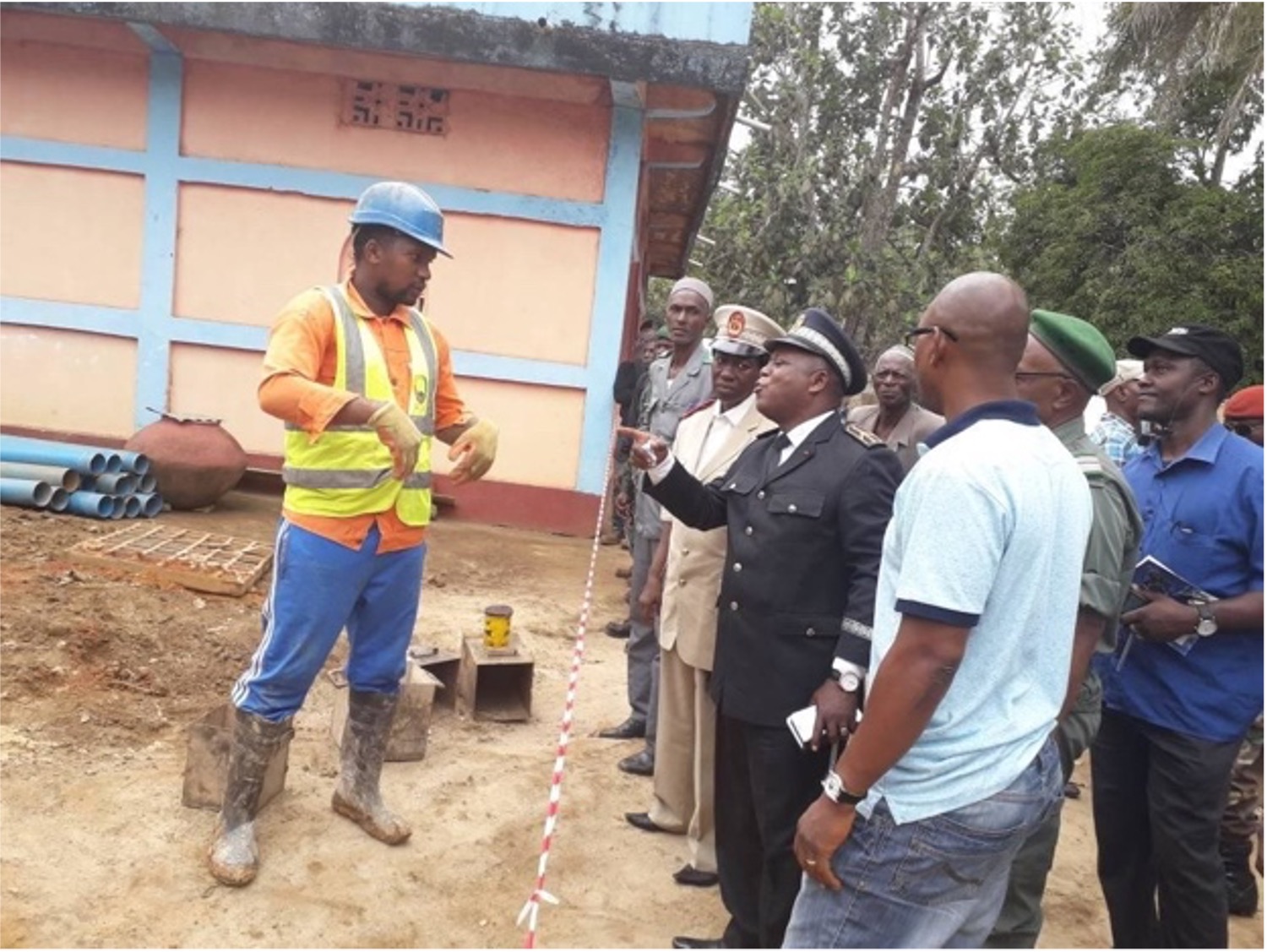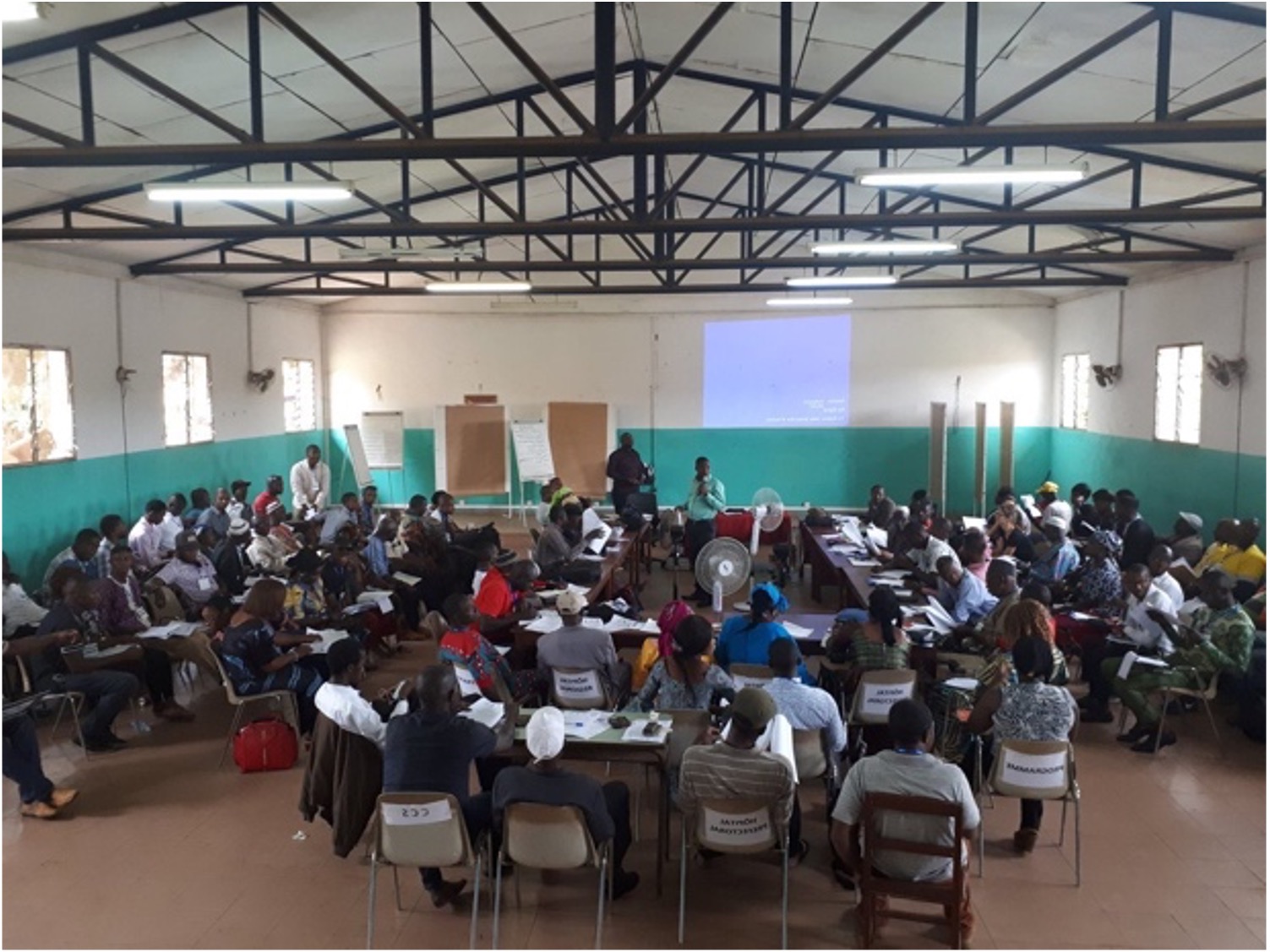AGREM +: Making the Mining Sector a Lever for Local Development
Support for improved governance of mining royalties
Challenges
In many LDCs with rich mineral resources, the extractive industry represents a large part of the national economy, contributing for example to one-quarter of the national budget in Guinea, Mali and Sierra Leone. However, while the mining sector directly impacts local economies (mostly resulting in a decline in traditional agricultural and livelihood activities), very little effort is made to provide developmental and financial solutions to boost local economies and support local populations in taking advantage of these changes. This results in a lost opportunity for the country to engage in structural transformation, create additional jobs and provide social services.
In the last few years, LDC governments have been trying to more effectively leverage the mining industry to provide additional opportunities for both the public and private sectors.
Towards a Solution
Across West African countries, and following actions of the Guinea Chamber of Mines (GCM) and the Association of ECOWAS Chambers of Mines network, new mechanisms have been put in place to increase access to funding for the public and private sectors and develop entrepreneurship in mining areas.
In 2017, the government of Guinea, the United Nations Capital Development Fund (UNCDF), the United Nations Development Programme (UNDP) and the GCM launched the Support for Improved Governance of Mining Royalties (AGREM) programme in the communes of the prefectures of Boke? and Boffa for a period of five years. The programme aims to promote fair, transparent and accountable practices in the management and use of resources at the local government level for sustainable and inclusive development. The solution was to mainstream mining royalties into intergovernmental fiscal transfers: a percentage of the annual turnover of mining companies (0.5 percent for bauxite and iron; 1 percent for other minerals) is levied by the government and transferred to local government budgets.
Between 2001 and 2017, UNCDF set up LDFs (Local Development Funds) in collaboration with the GCM and the Guinean government. The Guinean government decided to replicate the UNCDF initiative, giving rise to the Economic Development Fund (FODEL) in 2017. This mechanism, inspired by UNCDF performance-based grants, has increased the number of infrastructure projects planned and managed by local governments (LGs).
The AGREM project has provided support for LGs to absorb the increase in public funding. This support has enabled, among other achievements, the construction of the modern market of Boffa. As a result, LGs can now provide the basic services and economic infrastructure needed for development, thus contributing towards achieving SDGs 9 and 11 and IPoA priority areas 5, 7 and 8.
In addition, royalties from the mining sector are used to support the local private sector, including entrepreneurship and value chain linkages with the mining industry. UNCDF set up a guaranteed line in 2019, funded by mining company royalties and co-managed with the GCM. Capacity building, as provided by the guarantee fund, monitors structures in the proper management of their financing. SMEs thus benefit from subsidies, easier access to capital and subsidized interest rates, providing additional funding for local entrepreneurs. Partnerships with local banks and the GCM have been instrumental in this innovative approach.
Through these two different mechanisms and the support provided to the regional network of Chambers of Mines, the project is shedding light on how to better engage the private sector as a key contributor to the local economy. UNCDF’s work in Guinea has inspired ECOWAS countries to use the mining sector to help local development. UNCDF and the Guinean government have shared best practices through the Association of ECOWAS Chambers of Mines. The financial mechanisms created there were described for the purpose of replication. Thus, Burkina Faso has decided to create a Local Development Mining Fund in 2019, using the same principles as the Local Development Mining Fund set up by UNCDF in Guinea.
Recommendations from a regional comparison were commissioned by UNCDF and shared with the Chambers of Mines in West Africa for discussion and implementation. They concern the legal frameworks currently in place, as well as an analysis of the financial mechanisms developed in the mining sector of seven West African countries: Guinea, Senegal, Burkina Faso, Mali, Sierra Leone, Ghana, and South Africa. The aim is to create a framework between the countries of the South to develop similar mechanisms. The Chambers of Mines proved to be a first-class initiative partner for mobilizing actors around local development. Exchanges of experiences between the Chambers of Mines help to strengthen skills and launch new projects.
Since UNCDF’s work in Guinea, and thanks to the sharing of best practices throughout South-South exchanges within the Association of ECOWAS Chambers of Mines, countries such as Burkina Faso and Ghana in 2019 have decided to create mechanisms based on the model developed in Guinea. Building on the AGREM pilot, the AGREM+ project was conceived to support all ECOWAS member countries in develop- ing mechanisms for financing local development through mining royalties. The mechanisms can now be replicated and adapted to the needs of each country through South-South cooperation under the leadership of UNCDF. This project and the promotion by ECOWAS of regional standards for local development are driving the change of mobilizing the mining sector to contribute towards achieving the SDGs in the LDCs.
__________________________
Disponible en Français
Contact Information
Mr. Carlos Barry, Programme Officer, UNCDF; Ms. Christel Alvergne, Team Leader for Africa and Regional Advisor for Local Transformative Finance Practice, UNCDF
Countries involved
Burkina Faso, Ghana, Guinea, Mali, Senegal, Sierra Leone, South Africa
Nominated By
United Nations Office for South-South Cooperation (UNOSSC)
Supported By
Association of ECOWAS Chambers of Mines (EFEDCOM), Guinea Chamber of Mines, Burkina Faso Chamber of Mines
Implementing Entities
UNCDF, United Nations Development Programme (UNDP), Government of Guinea
Project Status
Completed
Project Period
2017 - 2025
Primary SDG
01 - No Poverty
Secondary SDGs
16 - Peace and Justice Strong Institutions
Primary SDG Targets
1.aSimilar Solutions










